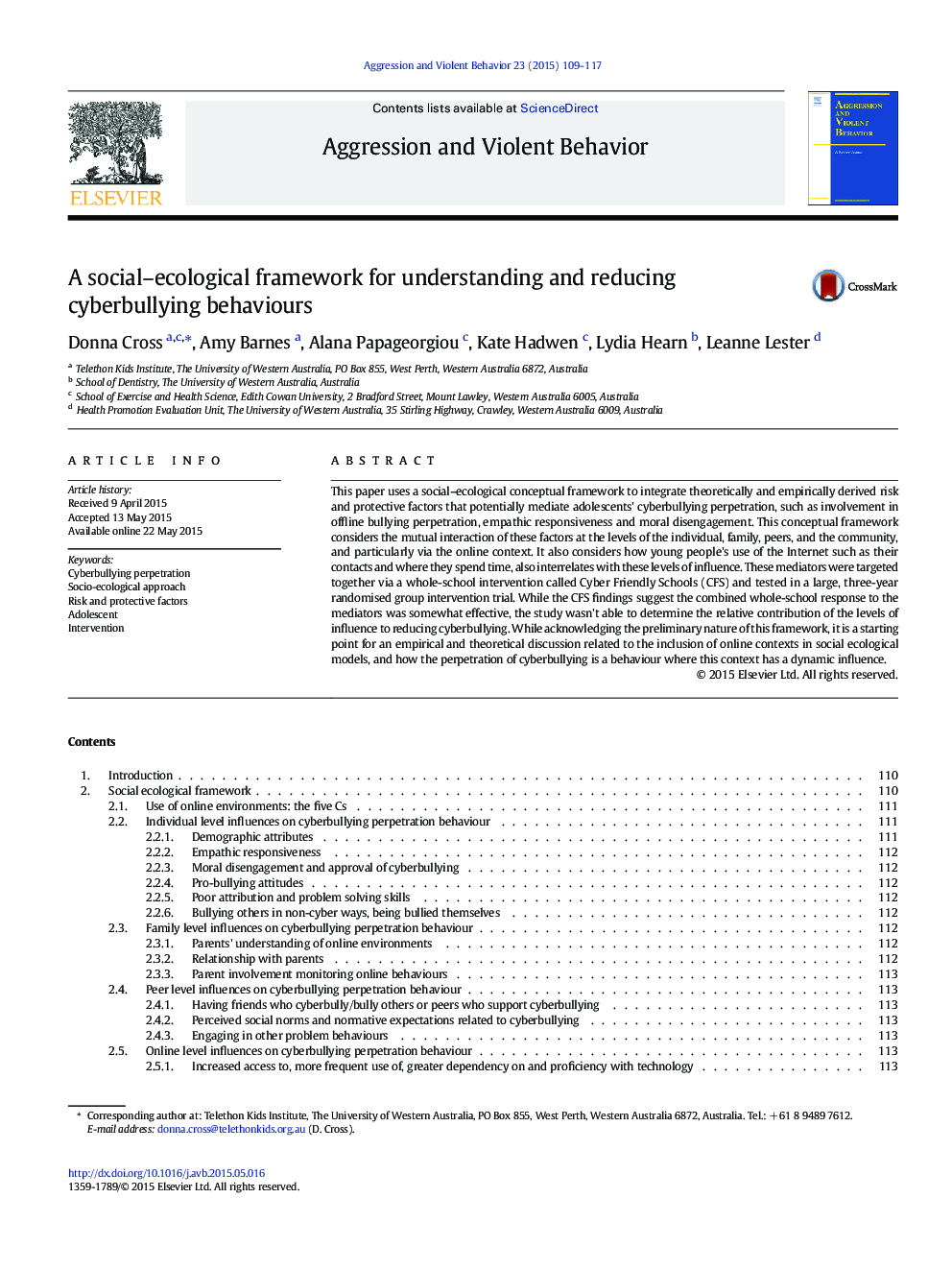| Article ID | Journal | Published Year | Pages | File Type |
|---|---|---|---|---|
| 94469 | Aggression and Violent Behavior | 2015 | 9 Pages |
•Ecological models often don't consider the influence of online contexts on individuals' development.•Internet use patterns may affect the influence of online contexts on individual development.•Cyberbullying behaviour is influenced by all social ecologies including online contexts.•To reduce cyberbullying behaviour all ecological influences need to be considered.
This paper uses a social–ecological conceptual framework to integrate theoretically and empirically derived risk and protective factors that potentially mediate adolescents' cyberbullying perpetration, such as involvement in offline bullying perpetration, empathic responsiveness and moral disengagement. This conceptual framework considers the mutual interaction of these factors at the levels of the individual, family, peers, and the community, and particularly via the online context. It also considers how young people's use of the Internet such as their contacts and where they spend time, also interrelates with these levels of influence. These mediators were targeted together via a whole-school intervention called Cyber Friendly Schools (CFS) and tested in a large, three-year randomised group intervention trial. While the CFS findings suggest the combined whole-school response to the mediators was somewhat effective, the study wasn't able to determine the relative contribution of the levels of influence to reducing cyberbullying. While acknowledging the preliminary nature of this framework, it is a starting point for an empirical and theoretical discussion related to the inclusion of online contexts in social ecological models, and how the perpetration of cyberbullying is a behaviour where this context has a dynamic influence.
